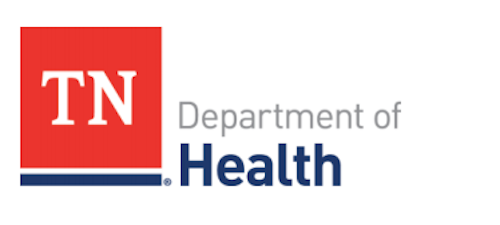Epidemiologist 1, Tennessee Department of Health
Category : Alumni
State of Tennessee Job Information
Opening Date/Time
Thur 04/07/2022 12:00AM Central Time
Closing Date/Time
Wed 04/20/2022 11:59PM Central Time
Salary (Monthly)
$5,222.00
Salary (Annually)
$62,664.00
Job Type
Full-Time
City, State Location
Nashville, TN
Department
Health
LOCATION OF (1) POSITION TO BE FILLED: DEPARTMENT OF HEALTH, FAMILY HEALTH AND WELLNESS DIVISION, DAVIDSON COUNTY
Minimum Qualifications
Education and Experience: Graduation from an accredited college or university with a master’s degree in epidemiology, public health, biostatistics, statistics or health informatics.
OR:
OR:
Education and Experience: Graduation from an accredited college or university with a master’s degree in a health science, biomedical science or environmental science field with experience equivalent to two years’ work experience in epidemiology.
Other Requirements
Necessary Special Qualifications: None.
Examination Method: Education and Experience, 100%, for Preferred Service positions.
Job Overview
Summary: Under direction, is responsible for professional scientific and epidemiological assessments of considerable difficulty; performs related work as required.
Distinguishing Features: An incumbent in this class manages data and conducts epidemiological evaluations and studies in communicable and environmental diseases and general population health. The incumbent also participates in making health and risk assessments and provides expertise to health department physicians, medical professionals, other departmental personnel and environmental regulatory personnel. This class differs from that of Epidemiologist 2 in that an incumbent of the latter is responsible for work of greater scope and responsibility and may or may not supervise.
Work Activities
Provide Consultation and Advice to Others:
- Provides guidance on standards to stakeholders and advice to management or other groups on technical, systems, or process related topics.
- Provides guidance on technical support to stakeholders and advice to management or other groups on technical, systems, or process-related topics.
Processing Information:
- Conducts basic descriptive epidemiologic analyses and reports findings to supervisor.
- Compiles, codes, categorizes, calculates, tabulates, audits and verifies information or data.
Monitor Processes, Materials, or Surroundings:
- Monitors and reports incidences of diseases or events to local, state and federal agencies to understand the distribution of diseases throughout the state.
Making Decisions and Solving Problems:
- Participates in the design and evaluation of study protocols and health status questionnaires, sample selections and analyses.
- Analyzes information and evaluates results to choose the best solution and solve problems.
Interpreting the Meaning of Information for Others:
- Translates or explains what information means and how to can be used.
- Communicates epidemiologic findings of diseases and health events to stakeholders.
Analyzing Data or Information:
- Identifies the underlying principles, reasons or facts of information by breaking down information or data into separate parts.
- Applies basic statistical knowledge to data analyses.
Interacting with Computers:
- Utilizes statistical software packages (e.g., EpiInfo, SPSS, SAS).
- Utilizes computers and computer systems (including hardware and software) to program, set up functions, enter data or process information.
Getting Information:
- Collects population based information from public health partners and stakeholders to ultimately reduce the incidence and spread of disease.
Evaluating Information to Determine Compliance with Standards:
- Assesses data to ensure compliance with laws, regulations or standards.
Communicating with Supervisors, Peers or Subordinates:
- Maintains contact with other related public health program staff in order to coordinate operations, functions, activities and services.
- Provides timely information to supervisors and co-workers in a clear and accurate manner.
- Identifies issues needing management’s attention and seeks support as needed.
Thinking Creatively:
- Participates in the development, design or creation of new applications, ideas, relationships, strategies, systems or products.
Documenting/Recording Information:
- Enters, transcribes, records, stores or maintains information.
Performing for or Working Directly with the Public:
- Deals directly with the public in a professional manner as directed by management.
Identifying Objects, Actions and Events:
- Conducts surveillance activities for diseases and identifies health events.
- Identifies data sources that can be used to identify health related events.
Communicating with Persons Outside Organization:
- Performs public contact and liaison work with other departments, governmental entities, social and community agencies or individuals.
Updating and Using Relevant Knowledge:
- Keeps up-to-date technically and applies new knowledge to the job.
Establishing and Maintaining Interpersonal Relationships:
- Develops constructive and cooperative working relationships with others and maintains them over time.
Organizing, Planning, and Prioritizing Work:
- Works with management to develop goals and plans to prioritize, organize and accomplish the work.
Training and Teaching Others:
- Works with management to identify the educational needs of others.
- Participates in the development of educational or training programs or classes.
- Participates in teaching or instructing others, as required.
Performing Administrative Activities:
- Performs day-to-day administrative tasks such as maintaining files and processing paperwork.
Competencies (KSA’S)
Competencies:
- Ethics and Values
- Functional/Technical Competency
- Integrity and Trust
- Intellectual Horsepower
- Learning on the Fly
- Organizing
- Problem Solving
- Technical Learning
- Time Management
- Biology
- Clerical
- Computers and Electronics
- Mathematics
- Active Learning
- Active Listening
- Critical Thinking
- Mathematics
- Monitoring
- Reading Comprehension
- Science
- Speaking
- Writing
- Complex Problem Solving
- Programming
- Troubleshooting
- Time Management
- Service Orientation
- Deductive Reasoning
- Inductive Reasoning
- Information Ordering
- Mathematical Reasoning
- Oral Comprehension
- Oral Expression
- Problem Sensitivity
- Time Sharing
- Written Comprehension
- Written Expression
- Speech Recognition
Tools and Equipment Used
- Personal Computer
- Telephone
- Fax Machine
- Printer
- Scanner
- Copy Machine
- Calculator
- Electronic Devices
- Smart Phone
Other Office Related Equipment as Required
